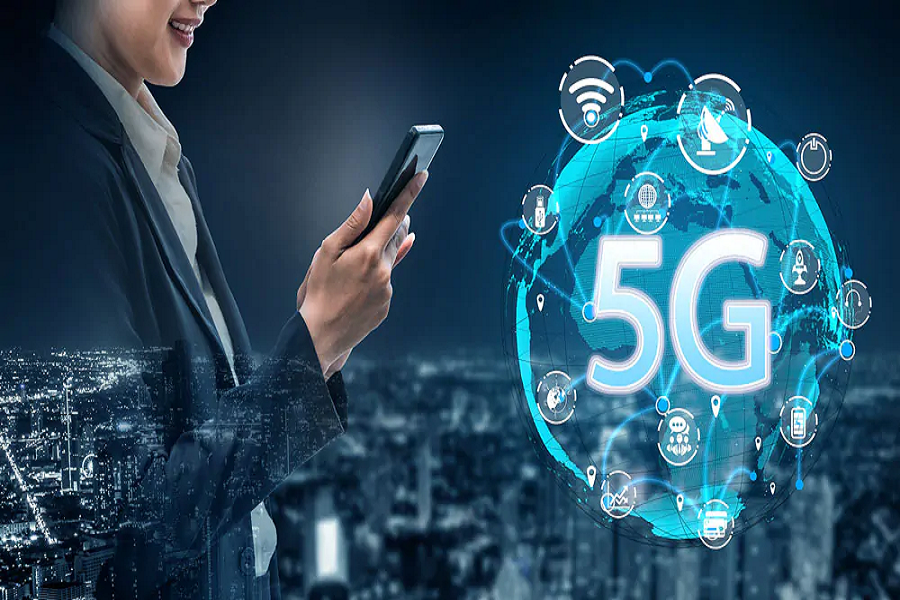5G and Data Science: Revolutionizing the Future of Technology

Image Source: group.teamlease.com
Introduction
Integrating 5G technology with Data Science marks a significant leap in our technological capabilities. As we move into 2024, this synergy is poised to transform how we process and analyse data, bringing about efficiencies and innovations across various sectors. This blog explores the intersection of 5G and data science, shedding light on the latest tools, the impact on the realm of data science, and the implications for future data scientists. We also delve into how this fusion benefits industries and businesses, focusing on the importance of data science courses, especially those in Bangalore.
Revolutionizing Data Collection and Transmission
5G isn’t just about faster downloads; it’s about a paradigm shift in gathering and processing data. Imagine remote sensing transmitting environmental data in real-time, enabling dynamic decision-making for agriculture, disaster management, and even urban planning. With increased bandwidth, data scientists can now deal with the previously unimaginable. Processing massive datasets from diverse sources like connected devices, social media, and IoT sensors becomes feasible, revealing hidden patterns and more profound insights never before possible. This opens doors for personalised medicine, targeted marketing campaigns, and proactive infrastructure maintenance – all driven by the fusion of 5G and data science. This advancement enables more efficient processing of larger datasets and facilitates complex analytical tasks, enhancing the capabilities of data scientists. 5G’s low latency and high speed immensely benefit data analytics, allowing data scientists and analysts to quickly collect, clean, and analyse large volumes of data. This transforms the way we see the world, offering more scope to improve analytics and sophisticated technologies derived from it
How 5G and Data Science Benefits Industries and Businesses
The convergence of data science and 5G is set to bring substantial benefits across various industries. In healthcare, real-time data analysis can revolutionise patient monitoring and telemedicine. In finance, faster data processing enables real-time fraud detection and risk management. Retail sectors can leverage 5G-powered data analytics for personalised customer experiences. IoT and 5G combined in manufacturing can streamline production processes and supply chain management. 5G’s wide bandwidth and ultra-low latency access several high-value domains, creating new market opportunities and changing advancements in the automotive, engineering, manufacturing, and entertainment industries.
The Data Scientist of the Future:
For aspiring data scientists, it’s crucial to understand 5G technology. Data science courses, especially in tech-focused cities like Bangalore, are beginning to incorporate modules on 5G technology. These courses offer an extensive understanding of how 5G can be harnessed in A data science course to prepare students for the challenges and opportunities in this integrated field. Understanding network architecture, data processing in a 5G environment, and applying AI and machine learning techniques in real-time analytics is essential for future data scientists.
This future demands data scientists with the skills and knowledge to navigate the evolving landscape. There needs to be more than just learning a data science course in Bangalore or anywhere else; the aspirants need to dive deeper into the intricacies of 5G and its implications for their specific domain. Some key areas to focus on include:
– 5G Network Technologies:
Understanding the capabilities and limitations of 5G networks, including latency, bandwidth, and network architecture, is crucial for designing efficient data collection and processing strategies.
– Edge Computing:
Data scientists must be familiar with edge computing platforms and algorithms to develop models that function efficiently at the network edge, close to the data source.
– Developing expertise in relevant data science tools and technologies:
Big data processing frameworks like Spark and Hadoop need to be complemented with skills in real-time data analysis tools like Apache Kafka and Flink.
– Real-Time Analytics:
Mastering real-time processing techniques and tools will be essential for analysing and making decisions based on constantly streaming data.
– Domain-Specific Knowledge:
A deep understanding of specific industries and their data challenges will be vital to leveraging 5G and data science for impactful solutions.
– Recent Tools:
In the era of 5G, data scientists are equipped with cutting-edge tools that include enhanced cloud computing platforms like AWS and Azure for 5G, offering robust data processing capabilities. The adoption of AI and IoT can be supported by 5G security, providing a better foundation for these technologies.
Conclusion
As we progress into a more connected and data-driven future, the role of data scientists in leveraging the potential of 5G becomes ever more critical. Pursuing a data science course, particularly one focusing on 5G integration, is a strategic move for any aspiring professional in this field. The fusion of data science and 5G is not just a technological advancement; it’s a revolution in data processing and analysis, opening new pathways for innovation and efficiency in various sectors. By actively seeking out a data science course that covers these aspects, future data scientists can position themselves at the forefront of this exciting trend. As in other major hubs, a data science course in Bangalore is already witnessing a surge in demand. By actively honing skills in the context of 5G, aspiring data scientists will be in high demand across industries, with their career future looking brighter.
ExcelR – Data Science, Data Analytics Course Training in Bangalore
Address: 49, 1st Cross, 27th Main, behind Tata Motors, 1st Stage, BTM Layout, Bengaluru, Karnataka 560068
Phone: 096321 56744







